Post by Jadyn Harris, undergraduate in Psychology pursuing an Interdisciplinary Neuroscience minor at Portland State University. Jadyn is a welcome and regular contributor to outreach visits through Northwest Noggin.
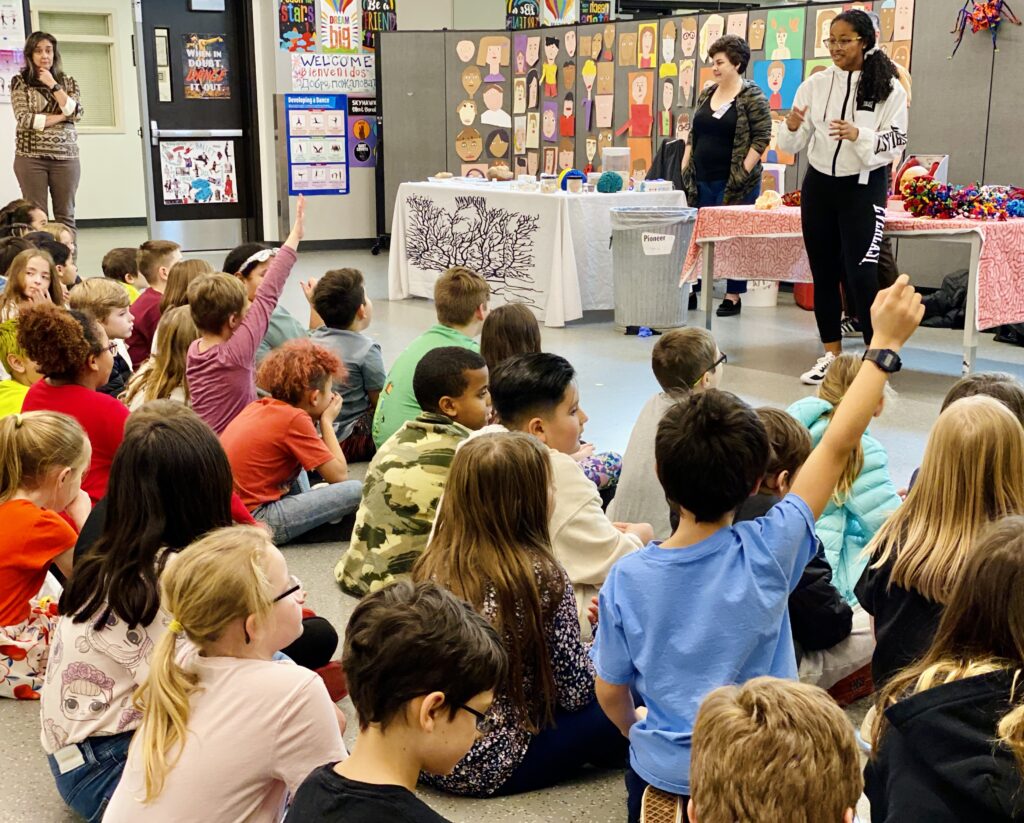
“Perhaps the most important problem in neuroscience is understanding what it means to be human, and music is an essential part of this.”
— Robert Zatorre
In January I joined outreach with the students of Portland’s public Sunnyside Environmental School. As with most Noggin visits, we brought in real human brains and explored student questions. However, this day also included a special performance from a 4th grade PPS teacher, Asa Gervich:
Asa brought his drum kit and played a lively song. He talked about learning through mistakes and demonstrated his acquired skill in music. While I watched, impressed, I noticed that a number of people in the room – particularly one student! – could not help but move their body. As someone who loves music, it made me wonder about the neuroscience behind it.
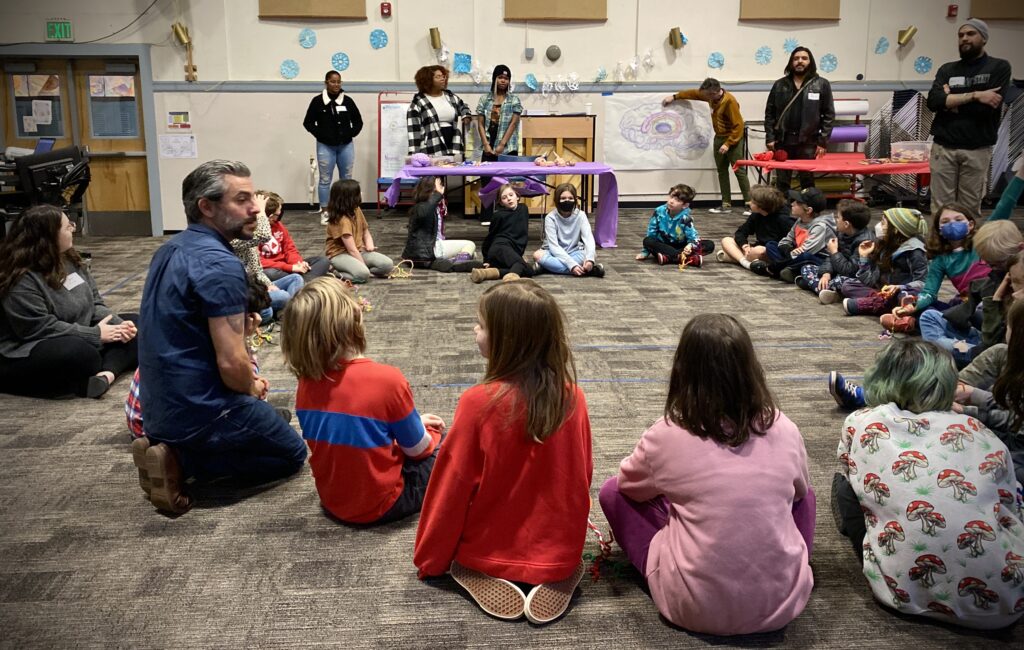
LEARN MORE: Learning through mistakes!
Why do we love music? What happens to our brain when we listen? What does music do for us?
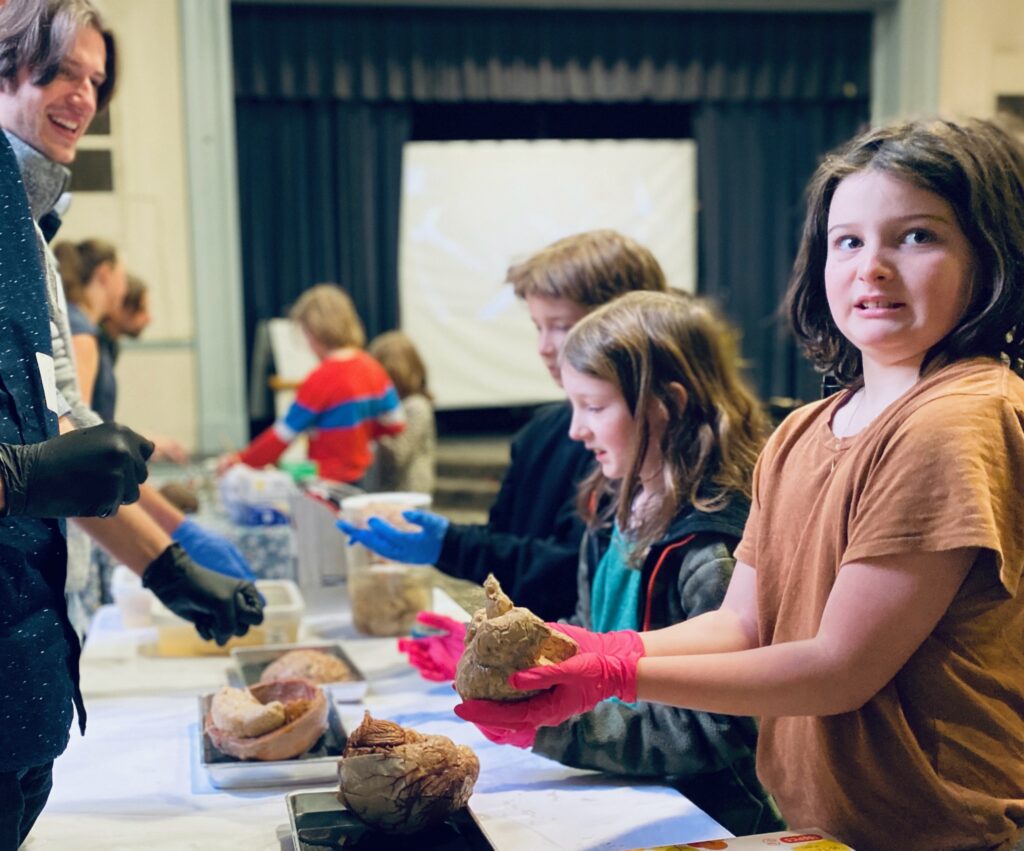
Interview with artists!
To explore these ideas I decided to start by asking local Portland area musicians, dancers and music lovers about their personal experience and thoughts about music.
“It awakens that creativity…It gets your brain moving in different ways and wakes pieces of you up that might not have otherwise been activated or engaged.”
— Sasha
My interview included four local artists. They are Sasha (22), a singer, dancer and songwriter, Izikaula (24), an athlete, dancer, African tumbler and acrobat, Bamboo (25), a dancer, musician, producer and performer and Justine (26), a music fanatic and new theater performer.
“When no one else is there, it’s there for me and I could easily go back to it… Every sound has an expression all you gotta do is just listen to it.”
— Izikaula
The four artists share their insights on the relationship between music, culture and our bodies.
We discussed the ways in which music impacts their bodies and brains, and ultimately allows them to express themselves through art.
“When mistakes come, just accept them and learn from them. That’s the key thing about mistakes, learning from them.”
— Bamboo
Sasha specifically talks about how music allowed her to unlock parts of herself that she didn’t even know were there. Justine explains how music can be a safe haven for him. When things are bringing him down he listens to music to control and influence his emotions and state of mind. Similarly, Izikaula talks about music always being there for support. He also describes his travels to Africa and his experience performing in the circus, and describes different relationships that regions have with music and how music is ingrained in culture and traditions. Bamboo introduces the varied characters and elements that his body can represent and examines his process of making imagination become reality through art, including musical expression.
“Music will be that final kind of release for me. I’ll be listening to music when I need to get from an OK place to an even better one…I always come out just feeling so inspired, yet tranquil and calm.”
— Justine
LEARN MORE: Re-Presentation: A Pilipino Musical” Full Show
A common theme present for all of them is that music is essential to them and their everyday lives. It can make a major impact on their moods and behaviors.
History
After hearing from people within the local community, I decided to dive into the history of humans and our ancient relationship with music. I highly recommend the video below, which provides a grand overview of music throughout history and how we are all innately musical.
From using our voices, to the development of the first instruments, music has played a central part in human history.

LEARN MORE: Music & Brain: Rewarding Rhythms for Houseless Youth
From Cameroon Pygmy music that sounds different every time, to the Crow dance or the Grass dance enjoyed at a Native American Pow Wow, to the Tinikling originating from the Visayas in the Philippines, music is rooted in our culture, and our culture is rooted in music.
Musical traditions, rituals and dances are the foundation of the music we hear today.
LEARN MORE: Cameroon: Baka Pygmy Music
LEARN MORE: Tinikling: The National Dance of The Philippines with Bamboo Poles
LEARN MORE: Siletz Stories, Singing, Dancing & Brains!
LEARN MORE: Pow Wow 101 (NAYA Family Center)
LEARN MORE: Origins of the Grass Dance
In fact, musical traditions have clear positive effects on the health of individuals and communities. Perhaps this well-researched benefit contributed to the motivation for and creation of music.
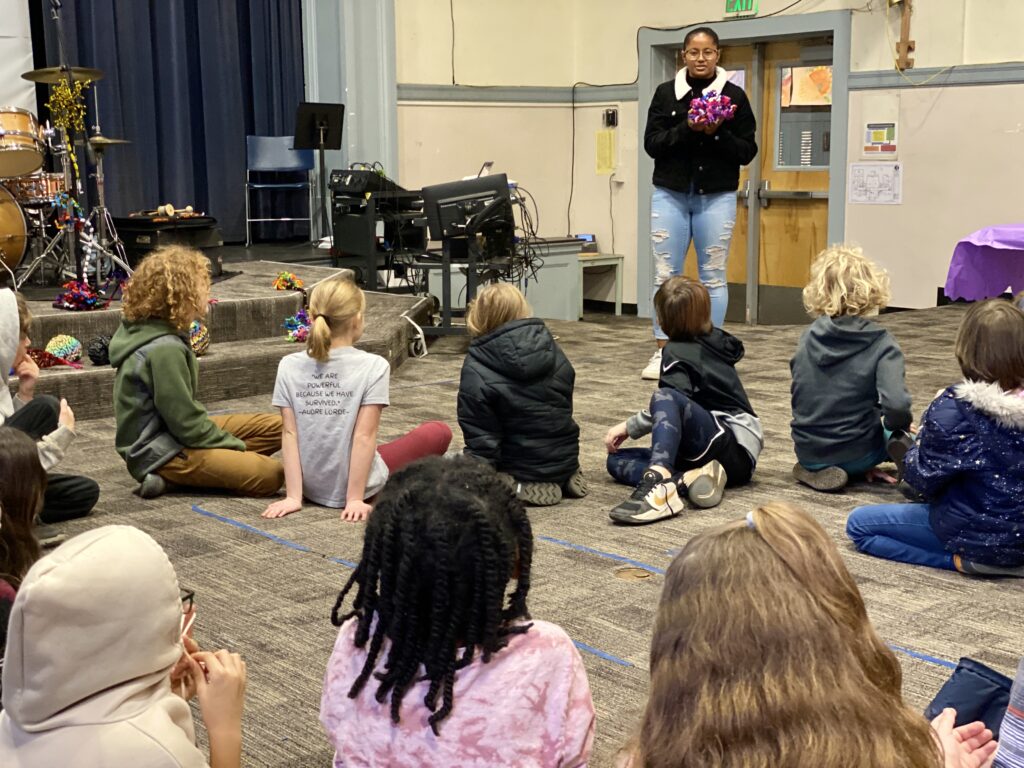
“[M]usic listening as a social activity relates to more positive emotions being experienced in everyday life. Hence musical rituals contribute to positive emotional well-being.”
— Diana Boer and Amina Abubakar
LEARN MORE: Can music be good for you?
LEARN MORE: Music and Health: What the Science Says
LEARN MORE: Music, mental health, and immunity
LEARN MORE: How Do Music Activities Affect Health and Well-Being?
LEARN MORE: NIH/Kennedy Center Workshop on Music and the Brain: Finding Harmony
The neuroscience of music
Since music has supported and influenced us for generations, I wondered how it affected our brains and bodies. What happens to our physiology when we listen, and why do we have the urge to dance?
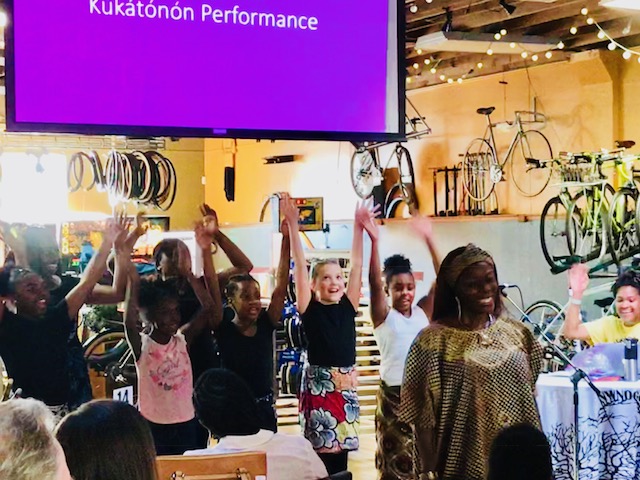
Music engages many parts of our brains!
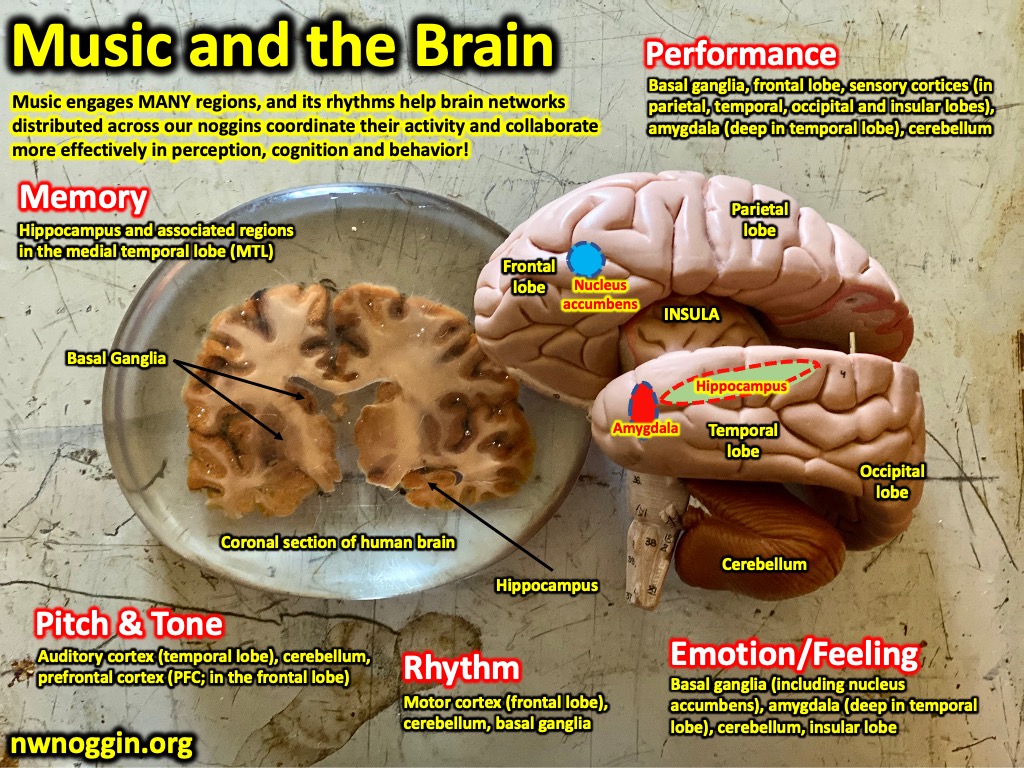
LEARN MORE: The sound system between your ears
LEARN MORE: Music and the brain: the neuroscience of music and musical appreciation
LEARN MORE: Neural Correlates of Music Listening and Recall in the Human Brain
Benefits of Music
Music improves immune function!
Our resistance to pathogens that cause disease or infection depends on the effectiveness of our immune response. Music can play a positive role in our body’s efforts to protect itself.

For example, Lavinia Rebecchini, a graduate student in Psychological Medicine at Kings College London found “that music can have effects on various neurotransmitters, cytokines, and hormones…Overall, changes have been observed across various immune response biomarkers, including leukocytes, cytokines, immunoglobulins, and hormones and neurotransmitters associated with immune response.” This same study showed that active participation in music (e.g., playing an instrument, joining a chorus, dancing) can be even more beneficial to our health than passive participation (listening alone).
LEARN MORE: Music, mental health, and immunity
LEARN MORE: How Do Music Activities Affect Health and Well-Being?
LEARN MORE: The psychoneuroimmunological effects of music: a systematic review and a new model
LEARN MORE: Singing modulates mood, stress, cortisol, cytokine and neuropeptide activity
LEARN MORE: The Effect of Music on the Human Stress Response
Music makes us feel.
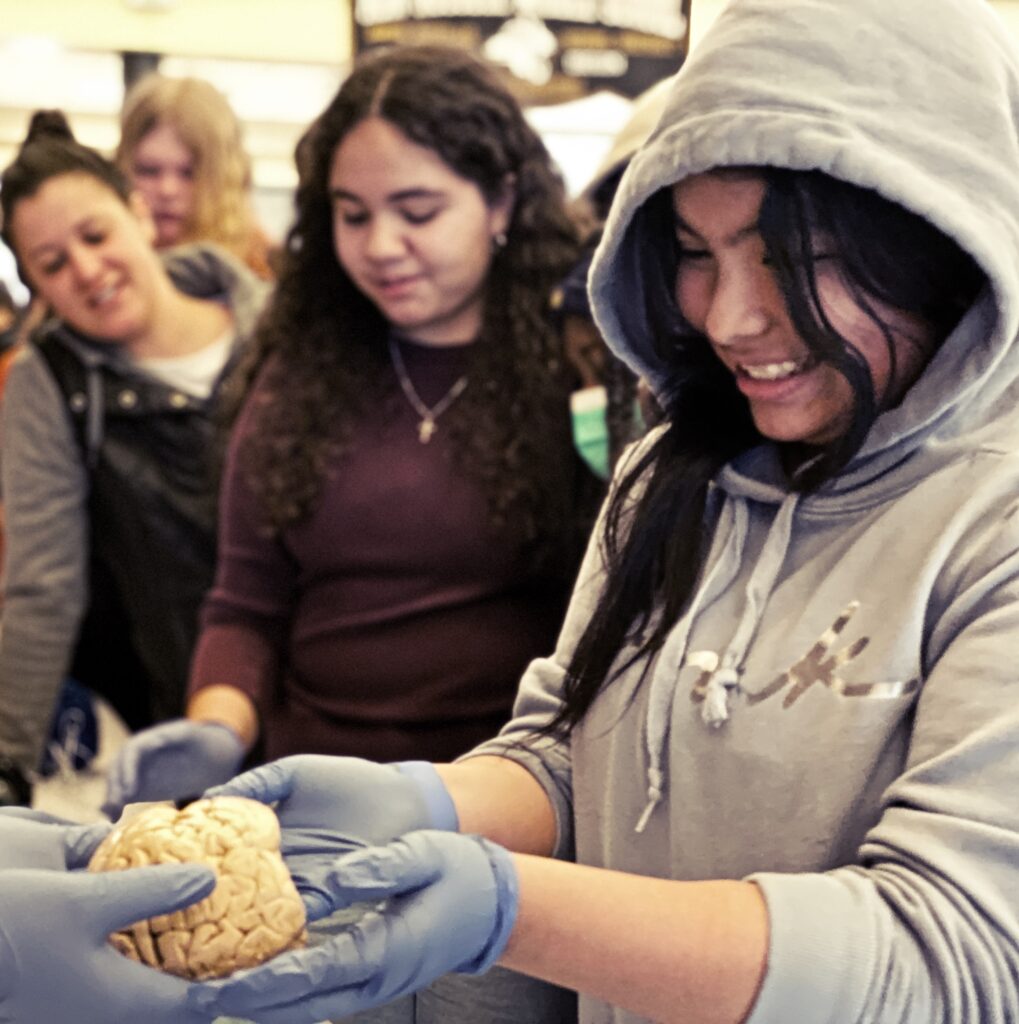
Music impacts mood, and mood is linked to mental health. Neurotransmitters are chemicals that help brain cells communicate and influence bodily functions. One well-known neurotransmitter is dopamine. Dopamine is released when we get motivated, and anticipate what we need to do next to accomplish something. Research shows that music and other art activities are rewarding, provoking dopamine release and an increased readiness to engage.
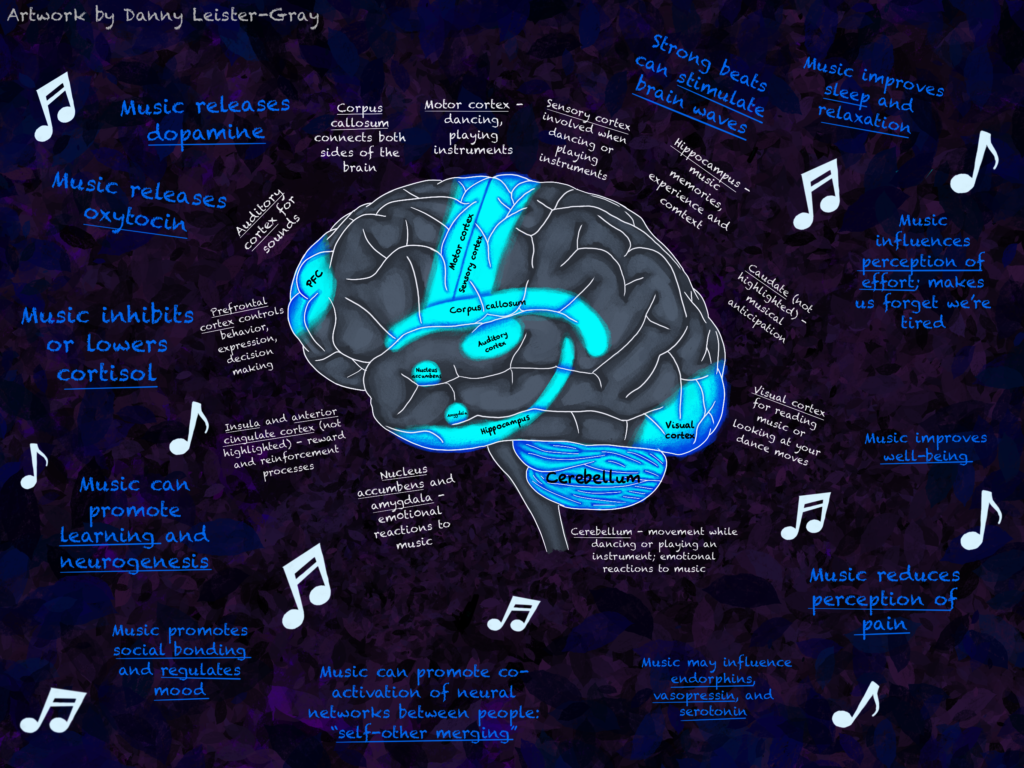
“Dopamine signaling lies at the core of the memory benefits mediated not only by explicit or primary rewards but also by abstract and aesthetic rewards, such as music.”
— Laura Ferreri et al
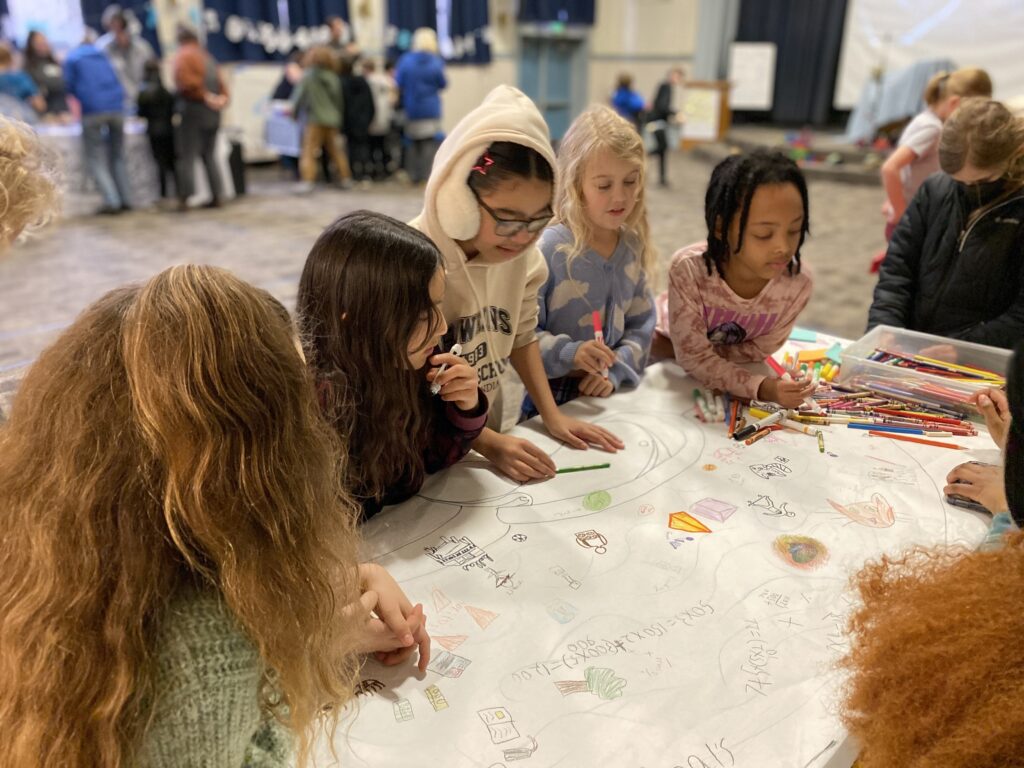
LEARN MORE: Dopamine modulations of reward-driven music memory consolidation
LEARN MORE: Musical pleasure and musical emotions
LEARN MORE: Music-Evoked Emotions—Current Studies
LEARN MORE: Music and Emotions in the Brain: Familiarity Matters
LEARN MORE: The effects of different types of music on mood, tension, and mental clarity
Music improves memory.
Music has tremendous impact on childhood and adolescent brain development, elevating mood, promoting better network coordination, and improving memory. Our emotions, and the regions of the brain that process our emotions, are powerfully engaged by music, evoking memories and feelings.
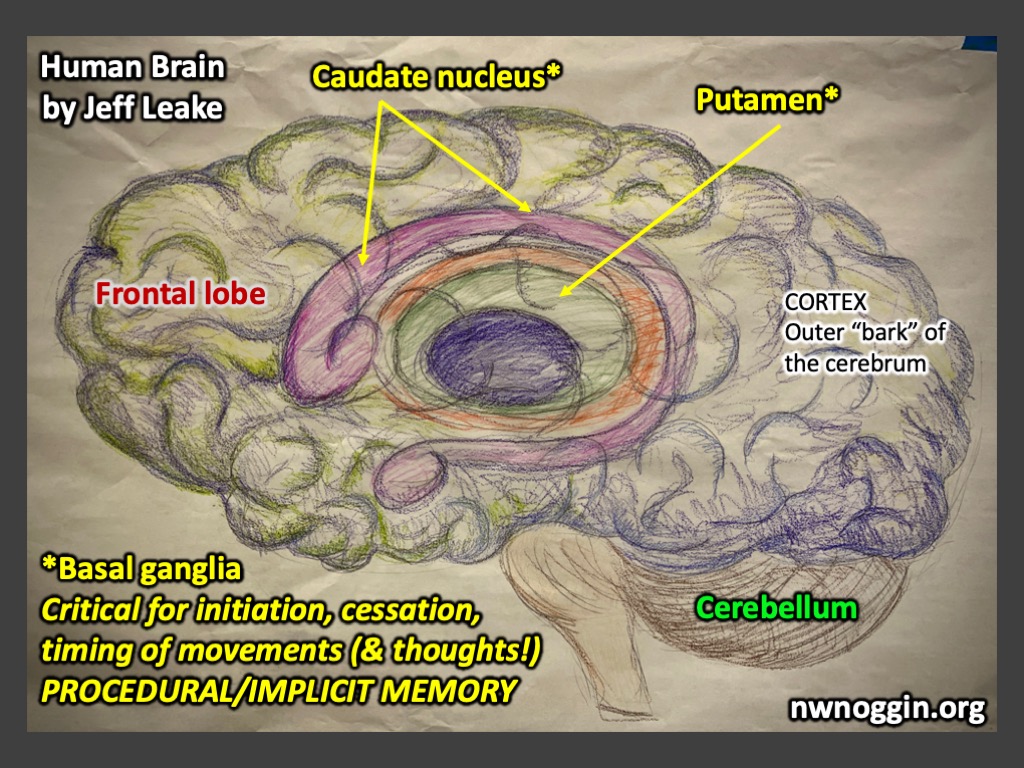
LEARN MORE: Music practice is associated with development of working memory during childhood and adolescence
LEARN MORE: How musical training affects cognitive development: rhythm, reward and other modulating variables
LEARN MORE: Music, memory and emotion
Music is also a fantastically effective and welcome memory enhancer for those struggling with Alzheimers disease (AD) and other dementias. Many areas of the brain involved in memory for music are spared in AD, and beloved songs can bring patients back to themselves, at least for a little while.
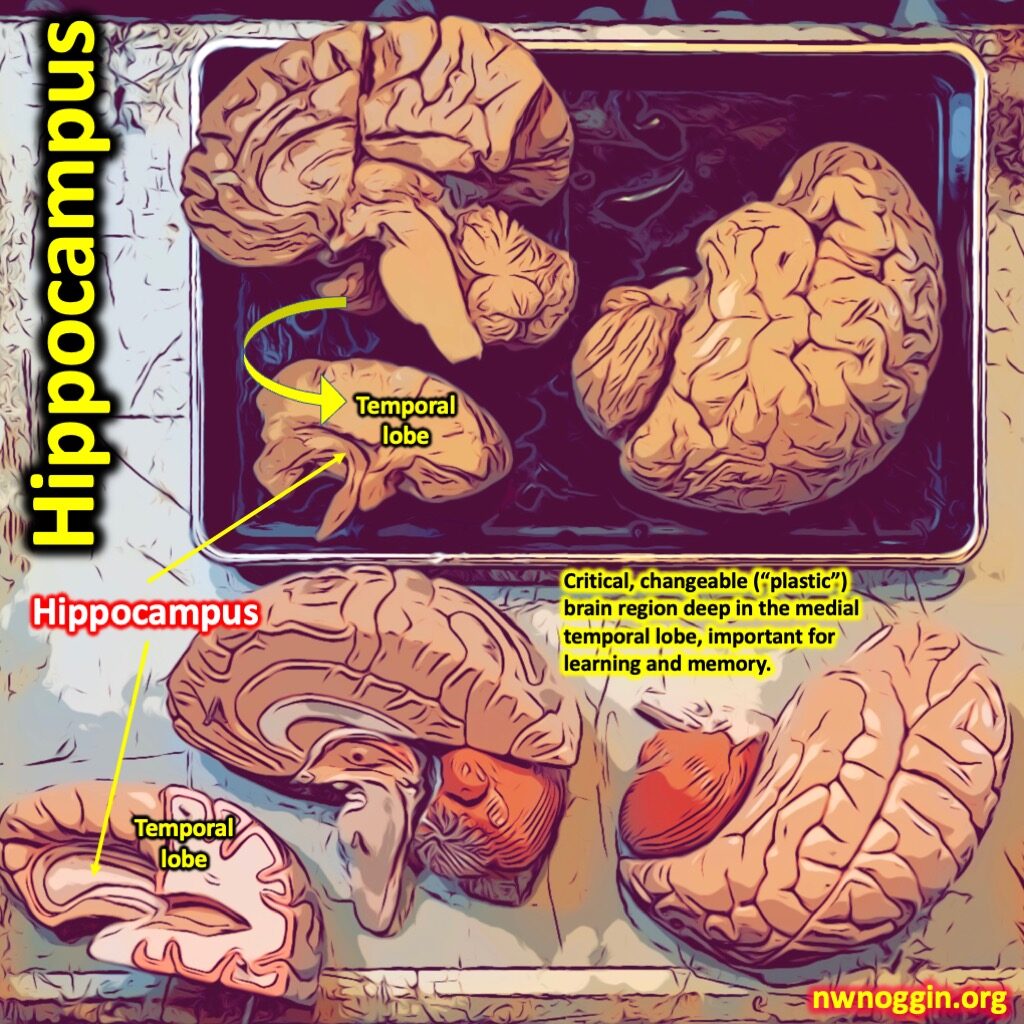
“Studies of people with memory disorders, such as Alzheimer’s disease, suggest that neuronal memory traces built through music are deeply ingrained and more resilient to neurodegenerative influences. Findings from individual randomized trials suggest that music therapy is accepted by people with depression and is associated with improvements in mood disorders.”
— Michael Trimble and Dale Hesdorffer
LEARN MORE: Alive Inside documentary
LEARN MORE: Music as a Memory Enhancer in Patients with Alzheimer’s Disease
LEARN MORE: Music and Memory: Individualized Music Intervention for People with Dementia
LEARN MORE: Music and the brain: the neuroscience of music and musical appreciation
Music matters
With so many benefits and effects of music it is no surprise that it’s found in so many different environments. For example, in sports we often see athletes getting ‘pumped-up’ or ready for action while listening to upbeat music. This is because it may give them the rush or similar feelings they want to draw on when they play the game. It may also alter relevant physical parameters like heart rate and breath.
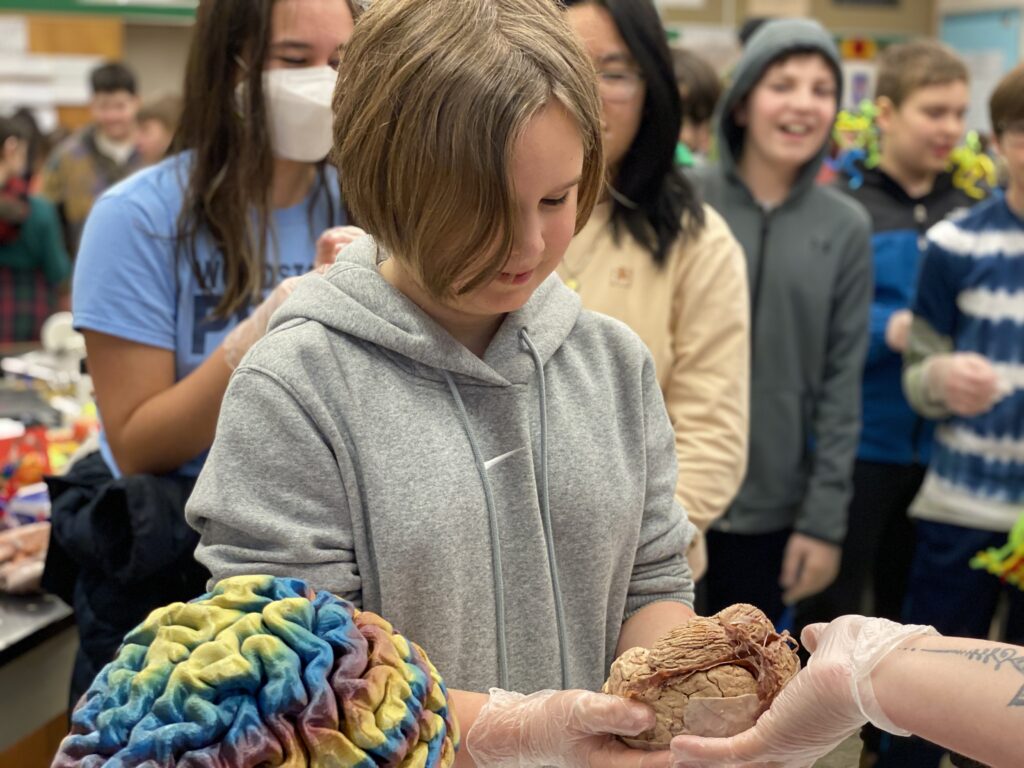
Music is often heard in stores and restaurants as well. The hope is that music will influence the mood of customers, making them more likely to spend money or perceive goods in a positive light.
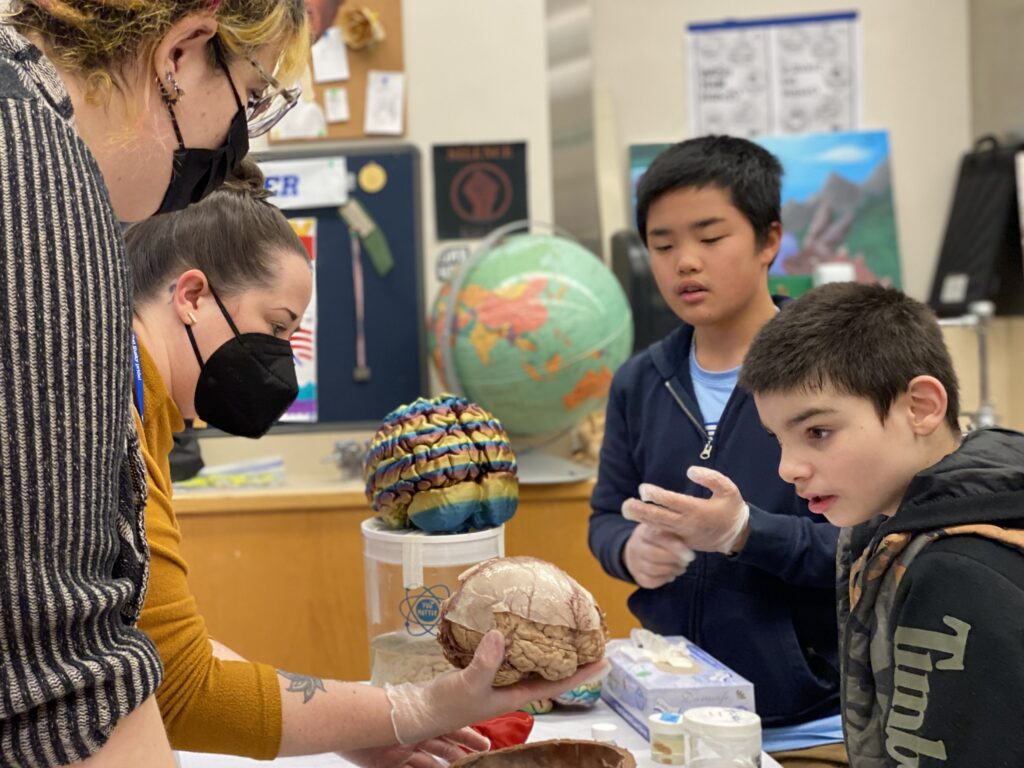
“The effect of music on moods and purchase intentions was recently studied…The authors concluded that structure and expressiveness of background music can evoke different moods and purchase intentions toward advertised products.”
— Gordon Bruner
Determining the impact of music on our perceptions and behavior is a job of consumer psychologists, who study how customers respond and advise shops on what strategies they should use to get them to spend money. Similarly, elevator or lobby music is used to soothe or calm customers. Even actors and actresses sometimes use music, like sad songs, to access stronger emotions for their performances.
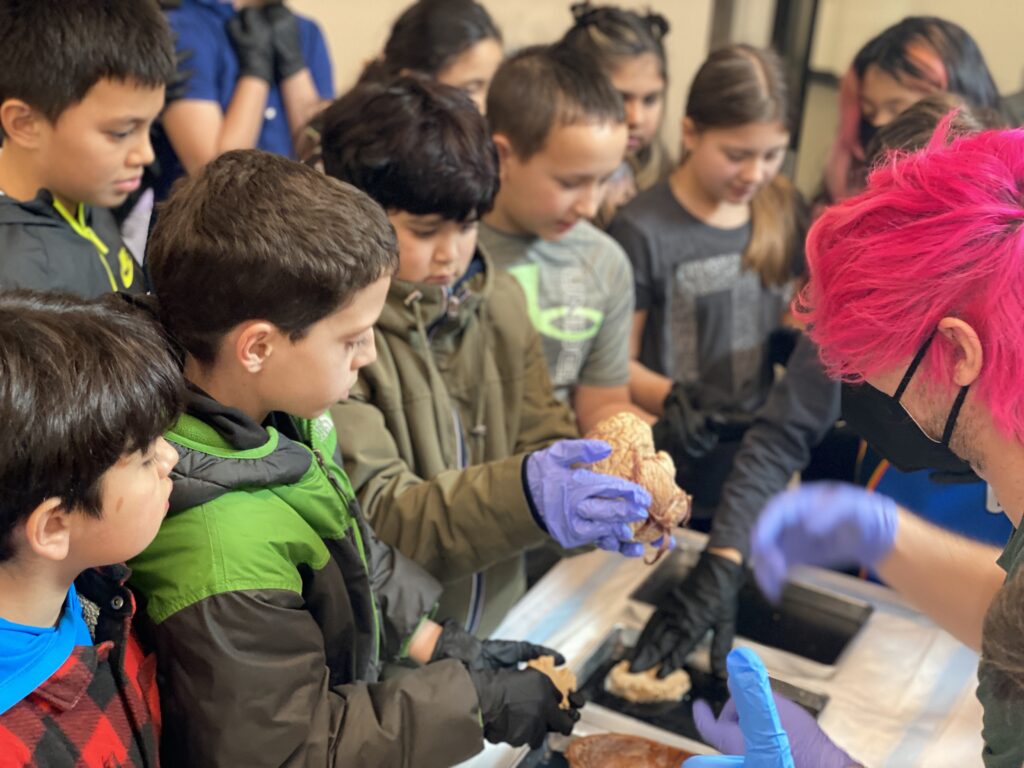
LEARN MORE: Music, Mood, and Marketing
LEARN MORE: Music in the exercise domain: a review and synthesis
LEARN MORE: Crossmodal Congruency Between Background Music and the Online Store Environment
LEARN MORE: A Meta-Analysis of the Atmospheric Effects of Music, Scent, and Color
LEARN MORE: How Music Can Help You Develop a Character
LEARN MORE: Rating the Acting Moment: Exploring Characteristics for Realistic Portrayals of Characters
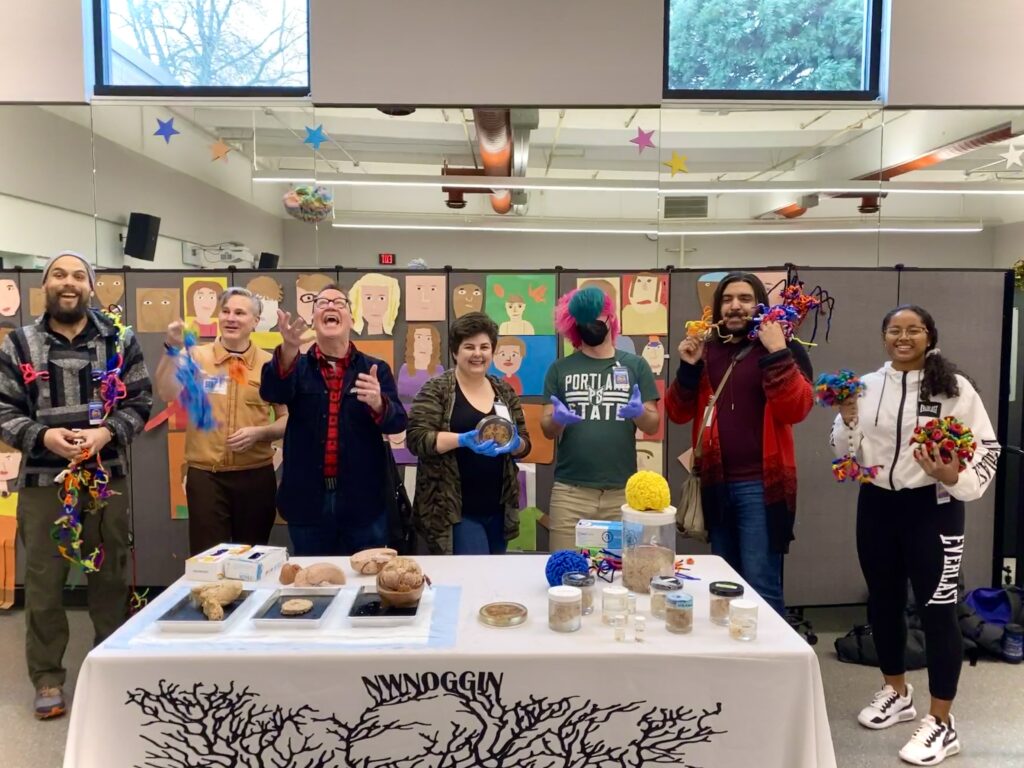
How does music make you feel? How do you use music?


